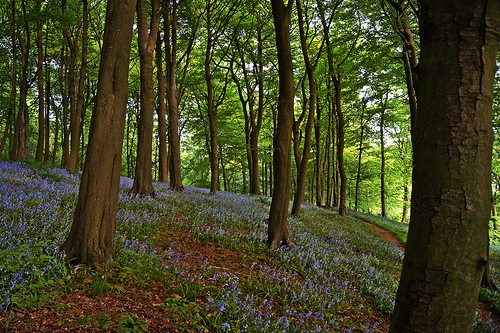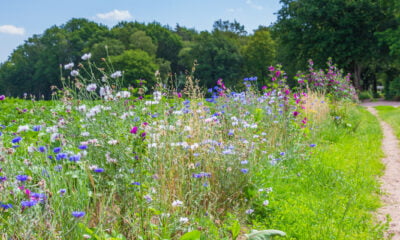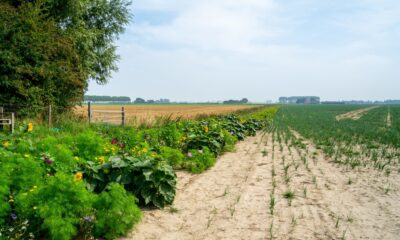

Environment
Government biodiversity proposals put nature ‘up for sale’, say campaigners
An environmental campaign group has called proposals to offset the destruction of wildlife “a license to trash nature”.
The UK government has announced plans to compensate the loss of biodiversity and natural habitats through development. The Department for Environment, Food and Rural Affairs (DEFRA) published a consultation document on the issue on Thursday.
The plans may mean that developers planning to build houses in environmentally important areas could to go ahead if they offset damage by paying for conservation projects elsewhere.
Similar schemes are already in operation in 25 countries, including the USA and Germany. After a nine-week consultation that will conclude in November, the government will put forward proposals on how biodiversity offsetting might work in the UK.
Environment secretary Owen Paterson said, “Offsetting is an exciting opportunity to look at how we can improve the environment as well as grow the economy.
“There is no reason why wildlife and development can’t flourish side by side.”
However, Friends of the Earth argue that biodiversity offsetting could mean that communities lose cherished local nature sites with no chance to object.
They also warn that the true value of natural habitats will be undervalued, as offsetting will not account for nature’s contribution to flood mitigation, human health, or pollination services provided by insects such as bees.
Friends of the Earth nature campaigner Sandra Bell said, “Nature is unique and complex – not something that can be bulldozed in one place and recreated in another at the whim of a developer.
“Instead of putting nature up for sale the Government should strengthen its protection through the planning system and set out bold plans to safeguard and restore wildlife across the UK.”
In May, a coalition of wildlife organisations carried out a ‘health check’ of the UK’s wildlife. It found that more than one in 10 of all UK assessed species are threatened with extinction.
60% of over 3,100 species had declined in the UK over the past 50 years, with 31% decreasing rapidly. The report concluded that human-induced impacts, including habitat degradation, urban development and intensive farming practices were all contributing to the decline of biodiversity.
On the report, renowned broadcaster and naturalist David Attenborough said, “This report shows that our species are in trouble, with many declining at a worrying rate. However, we have in this country a network of passionate conservation groups supported by millions of people who love wildlife.
“The experts have come together today to highlight the amazing nature we have around us and to ensure that it remains here for generations to come.”
Further reading:
Climate change to ‘change the face’ of UK coastal wildlife
Marine conservation could be worth ‘billions’ to UK economy
State of Nature report reveals alarming UK wildlife loss
Why we can’t afford to lose ecosystem services


 Environment11 months ago
Environment11 months agoAre Polymer Banknotes: an Eco-Friendly Trend or a Groundswell?

 Features10 months ago
Features10 months agoEco-Friendly Cryptocurrencies: Sustainable Investment Choices

 Features11 months ago
Features11 months agoEco-Friendly Crypto Traders Must Find the Right Exchange

 Energy10 months ago
Energy10 months agoThe Growing Role of Solar Panels in Ireland’s Energy Future





























